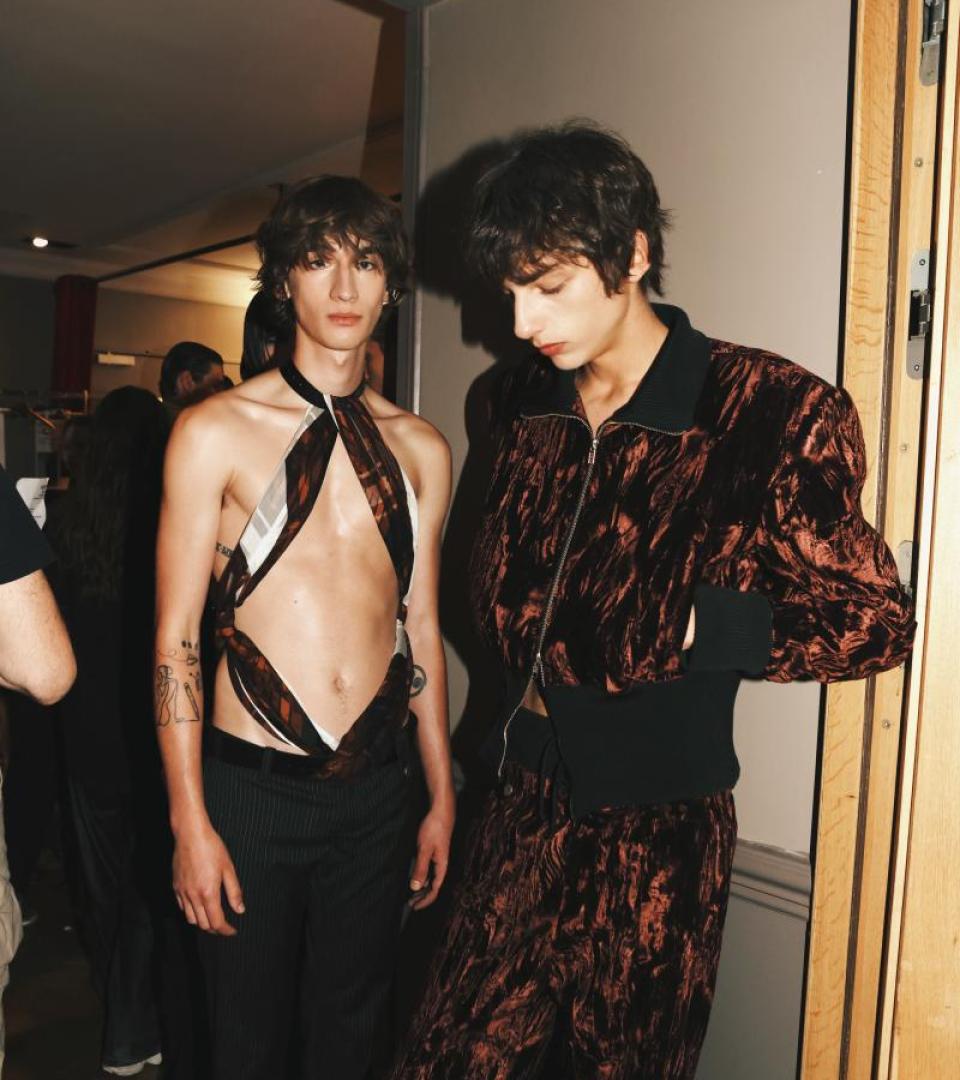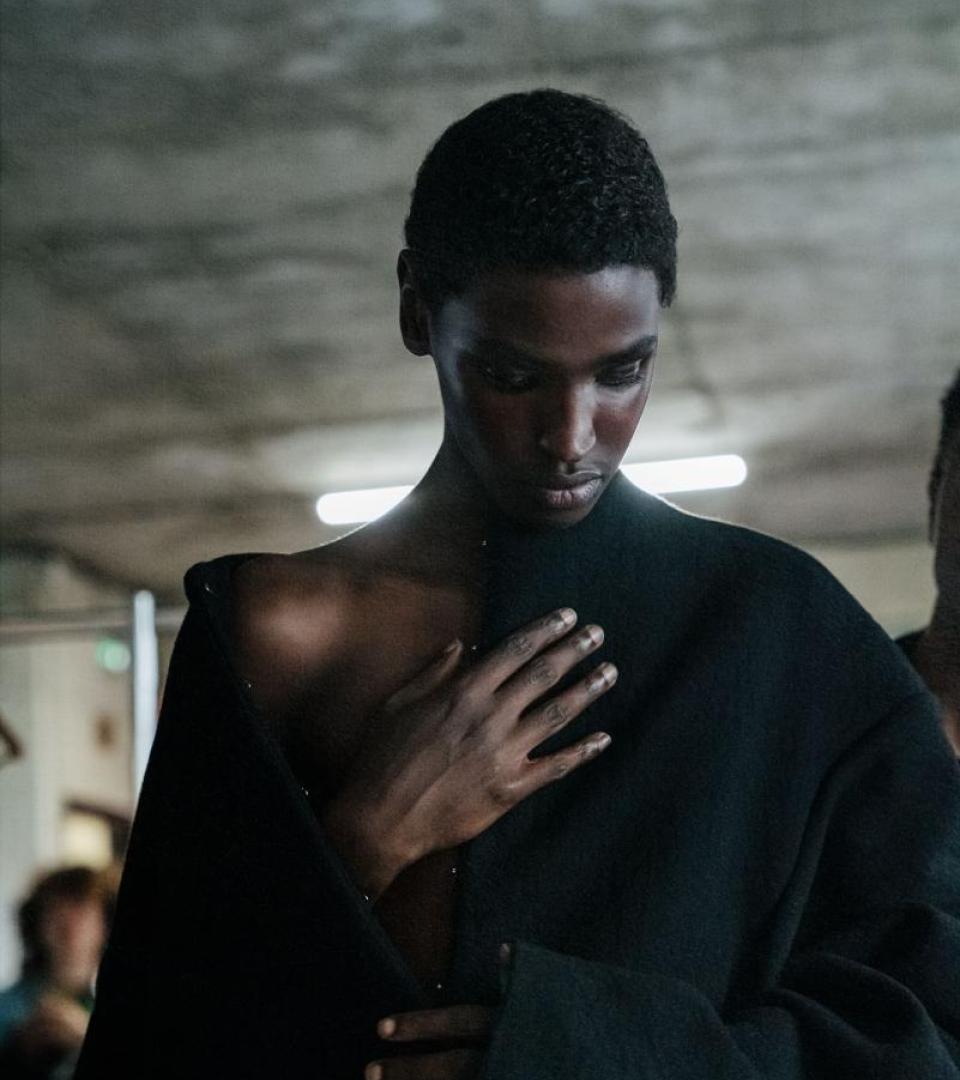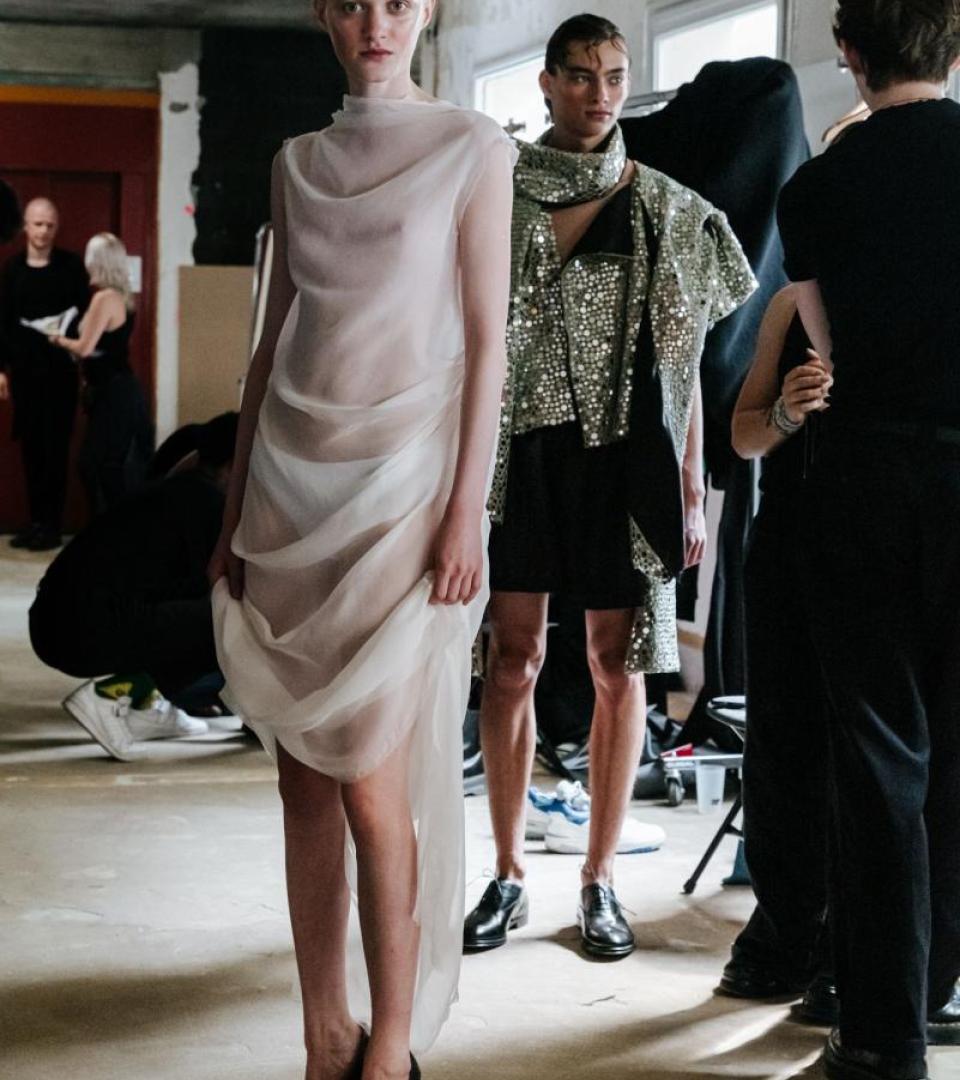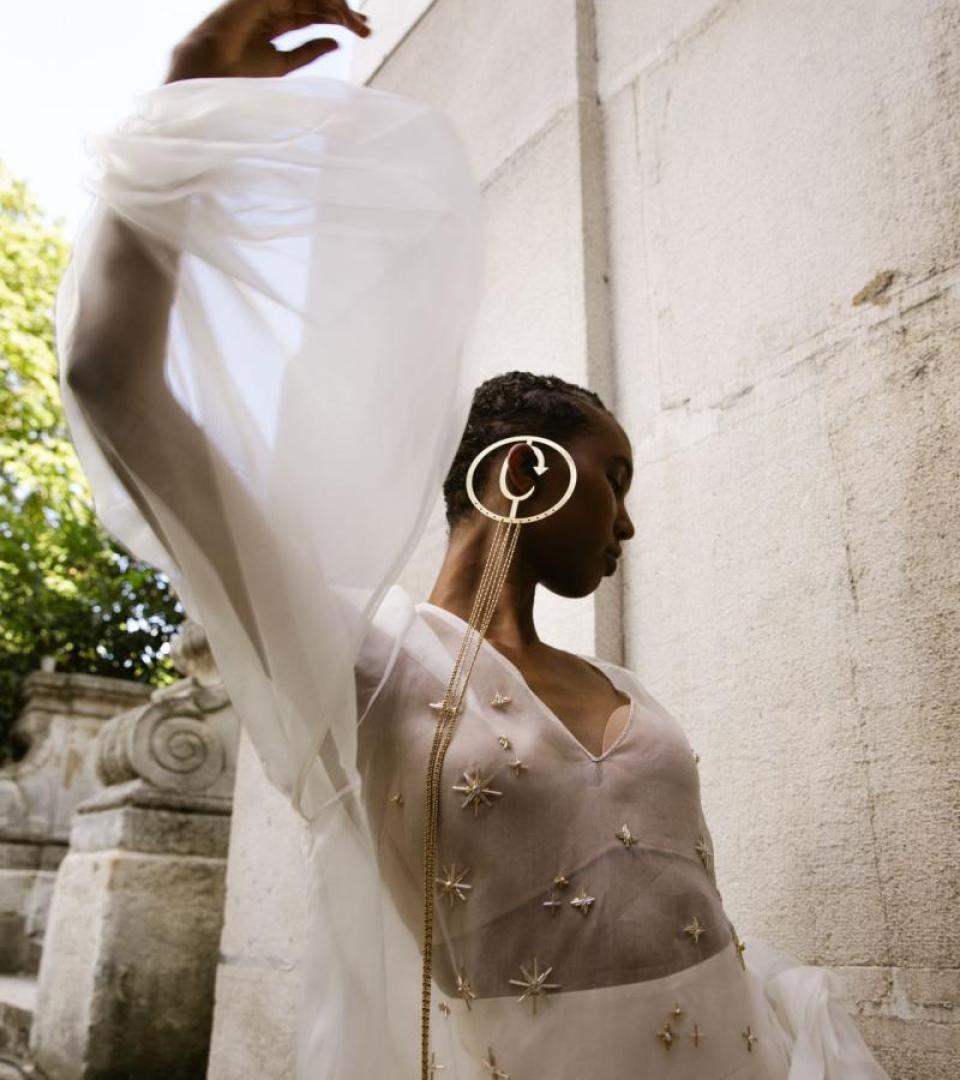Paul Smith’s Grounded Vision
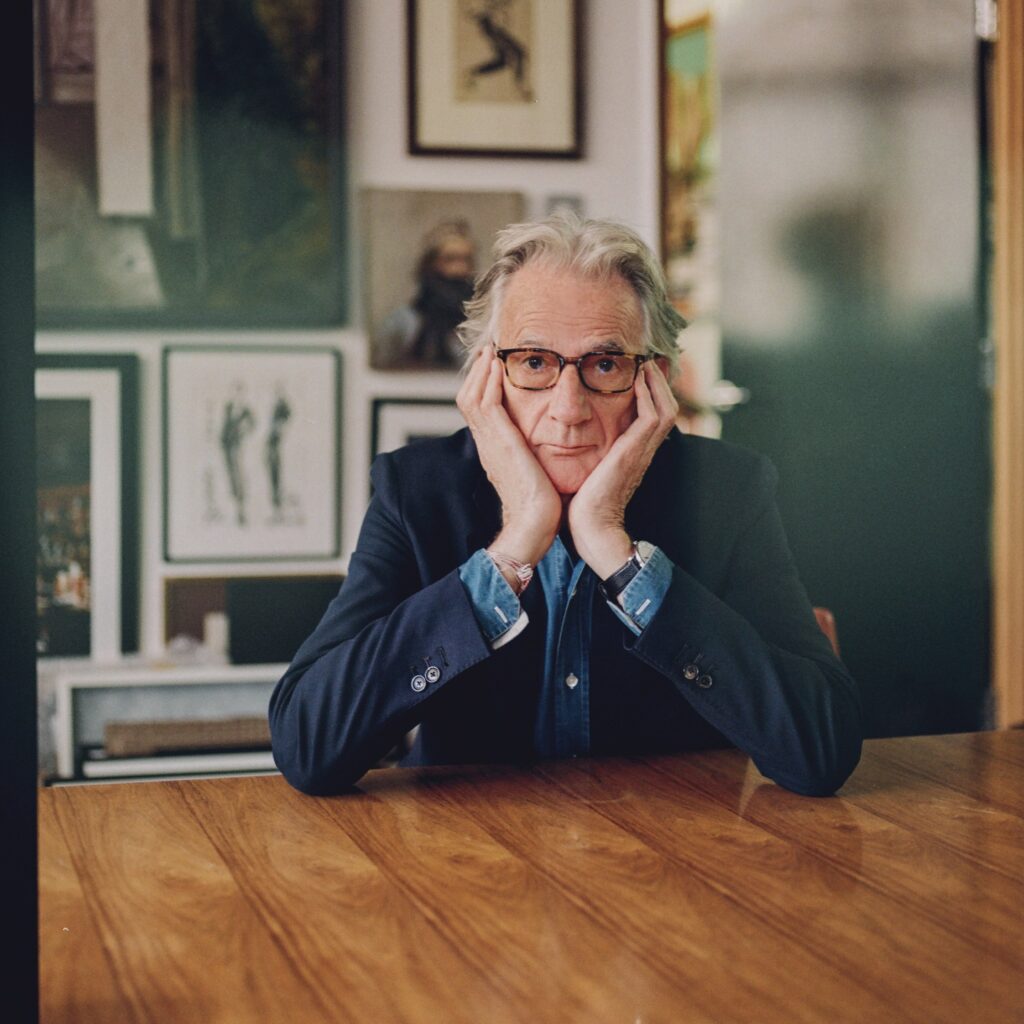
“Fashion is like a moving target,” said Paul Smith, calling from his London office. “Nobody cares how good you used to be. Therefore, fashion is very much about today and tomorrow, about what you’re going to do next.” A designer as legendary as they come, with over 50 years of experience in the industry, he remains committed to keeping the wheel spinning.
For Spring-Summer 2022, at a modest presentation with live music in his Marais showroom, he’s sharpening his focus on the future, arriving at a place that considers the effects of the pandemic on our wardrobes while ushering things forward. His namesake rigorous, quintessentially British tailoring is constructed in a softer manner with drawstring waistbands and fabrics like an interlocking jersey that moves with the body; wool knitwear is serene, uncomplicated, and fabric choices are “earth-friendly” and comfortable. The aim, he asserts, is to telegraph comfort and ease in a modern way.
“They’re not sensational catwalk clothes; they’re clothes to wear,” he said.
How do you define the future of fashion?
If we looked in the dictionary about fashion, or the definition of fashion, as far as I think, anyway, it’s always about being fashionable, which means about today and tomorrow. It’s very trend-led.
How do you balance the past and future in your design?
It’s always about learning from the past. In terms of the actual clothes, you’d be foolish to stop doing things that you know work well. But you always have to give them a nudge, reinterpret them slightly, and give them a new lease of life. People come to Paul Smith for good quality, easy-to-wear clothes, with some colour and with some happiness, and often with a little surprise like a different coloured button or an unusually coloured lining. It’s about playing to your strengths while observing the year that we’ve had and designing accordingly. Of course, that changes every year.
What concerns you about the future?
Everything’s moving so quickly, isn’t it? I’m a very positive person. But, you know, it is disturbing. What’s incredibly disappointing about fashion today is that it used to be a form of self-expression. Now, it’s so homogenized and reliant on the power of the big brands dominating the world of advertising; and because they have the power to do that, individuality is very thin on the ground.
How do you imagine fashion changing over the next decade?
It’s almost like sustainability is a trend. We know with sustainability there’s a lot of abuse of that. There’s a lot of people using statements and press releases like, “We are committed to the future, blah, blah, blah.” In fashion, and in many industries, the future is, without question, sustainability. It’s about less waste; looking at where things come from; how they’ve turned into something; in what method; and what is used to turn whatever it is into something [else]; and then where it ends up after that something is finished. That’s what the true future of fashion should be. And not just fashion, but many industries like farming, supermarkets etc. You worry that it’s a buzzword rather than people actually getting into the nitty-gritty. It’s complicated to get into that and it’s very costly, but what you can do is your best. As [we] learn more about sustainability, sourcing, traceability, then, of course, we hope within two or three years, there’ll be a lot more absolute purity and honesty in terms of sustainability.
How is the brand advancing its sustainability efforts?
We’ve been pretty far ahead in terms of sustainability, but we continue to chip away at it more. Lots of our fabrics are traceable: we know where the wool came from, which sheep, what herd, how it was dyed. Everything down to the box that we send it out to customers [or] bags that the customer would have if they bought them in our shop. All our shops in the UK are solar-powered and we reuse rainwater.
What excites you about the future?
The generation that [is] coming up will question the monopoly that many of the large companies have around the world. They can harness the energy and the skills of an artisan, or an individually owned brand, rather than a conglomerate. If you really think about it, almost everything you do is because of big corporations such as Microsoft, Apple, etc. What excites me is that the younger generation might reject some of that and start to embrace more down-to-earth things.
